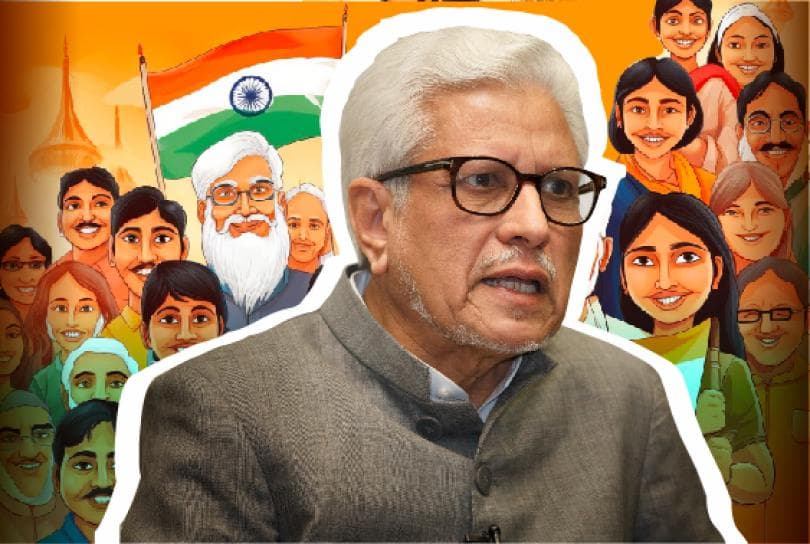Islam, Identity, and Secularism
A Scholar's Perspective on Tackling Extremism, Fostering Unity, and Reinterpreting Islam

Muslims complain of Islamophobia, and perhaps rightly so. However, it is equally incumbent upon them to admit that a number of Muslim organizations have been peddling views that can clearly be categorized as extremist and serving as the ideology of militant organizations.
These thoughts have unfortunately been taught by Islamic scholars at universities and madrasas. I have addressed this issue in my lectures and writings. Among various other things, I have concluded that secularism, or the state being free of its own religious leanings, should be an integral part of Islamic interpretations. Islam doesn’t address a state; its dialogue is with an individual. This individual denotes all human beings.
I strongly believe that Islam emphasizes building the personal character of its believers rather than exhorting them to enter into conflicts with followers of other faiths. I have absolutely no hesitation to accept that extremist Islamist organizations worldwide launched violent extremist movements to promote religious extremism and, thereby, prepared the ground for Islamophobia across the world.
Several religious scholars took issue with my views. Maulana Taqi Ahmad Usmani (the most prominent Deobandi scholar of Pakistan) wrote a lengthy essay questioning my views. I countered him by stating that Islam doesn’t make establishing a state its purpose. The deen of Allah (the path of God) sees the bonding of akhuwwat (brotherhood) among human beings as an ultimate aim.
Now, let's consider the views or fatwas of Islamic scholars who declare the faith of even their fellow Muslims as unfair based on their own narrow interpretations. This has led to conflicts among Muslims themselves, let alone their relations with non-Muslims.
The reactions in the West sometimes respond to such Muslim tendencies that endeavour to chart a separate identity. The reactions in the West sometimes seems to be an over-reaction. For instance, the recent statement of Italian Prime Minister Georgia Meloni that ‘Islam is incompatible with European values’.
Muslims haven’t woken up to the concept of the nation-state. Our qaumiyat (identity) is Indian, Pakistani, and so on. Pakistan was established for Muslims, but from the very first day, many Pakistanis see themselves as such, whether they are Muslim, Hindu, or Christian. The same stands true for people living in the West.
India is one of the great modern nation-states. It is governed by a secular constitution. In its 75-year independent history, it has strived to be secular state, yet people from all faiths thrive here.
People by nature tend to be sensitive about their identities, based on religion, language, or region. For example, people not only cheer for cricket but also for their own cricket team. Sometimes, such identities are exploited by extremists to create societal divides. However, as a nation India has demonstrated to the world that unity in diversity survives such shenanigans.
People in India can’t be partitioned into religious, linguistic, and regional groups. Its polity and social life will serve as a role model to the world if they adhere to the core principles of secularism, which form the bedrock of India’s democratic identity.



































